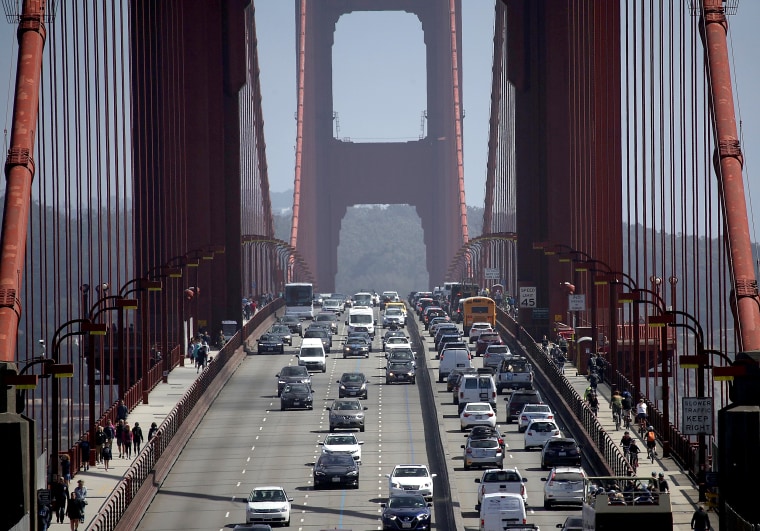The White House plan to strip California of its authority to set tougher fuel economy standards has set off a firestorm of opposition, with 19 states already announcing plans to challenge the administration in court — leaving automakers like Ford, Toyota and Volkswagen unsure whether to proceed with billions of dollars in investments in the technology needed to improve fuel efficiency.
Two years ago, heading into a midterm review of the Corporate Average Fuel Economy, or CAFE, standards enacted under the Obama administration, the auto industry argued that the 54.5 mpg target set for 2025 would be too difficult and costly to meet, a position quickly embraced by President Donald Trump.
But the plan the White House has worked out has gone beyond what many in the auto industry say they wanted or needed. Complicating matters, the proposed CAFE revisions would take away California’s ability to set its own standards — which 10 other states, as well as the District of Columbia, have adopted.
“We are ready to do what is necessary to hold this administration accountable,” said California Attorney General Xavier Becerra.
With public hearings and other steps yet to be completed, however, it's likely to be months before the final rules are enacted, and the general consensus is that it could be another year or more before all legal challenges are completed.
That seriously complicates matters for an industry with extremely long lead times. Key product decisions are typically locked down three to five years in advance. So, even if they could act today, automakers could do little to change products that will be on sale for the 2021, even the 2022 model-years. With the anticipated legal challenges, planning strategies might remain “in limbo,” said veteran auto analyst David Andrea, at which point they’ll already be drawing up engineering, production and investment plans for products coming out for the 2023 model-year and beyond.
“Putting this into the court system will cloud investment decisions for the next several years,” Andrea told NBC News. If anything, the industry will be forced to act as if the old CAFE mandate remained in effect, which could mean investing billions in advanced fuel equipment technologies that ultimately would prove unnecessary if the courts side with the Trump administration. But “it’s always more expensive to catch up” if you delay those decisions and then have the courts rule against the mileage revisions, he said.
Besides, Andrea said, automakers know that “the pendulum could swing the other way” if a new president is elected in 2020, along with a Democratic House and Senate majority intent on reversing Trump’s environmental cutbacks.
That position was echoed by a number of auto industry executives who spoke to NBC News on background, one from a Detroit-based automaker suggesting that “I can’t see anyone backing off” until all the court challenges are completed. Added another, “We can only work on what is already law.”
For public comment, those executives all referred to a statement issued jointly by two trade groups, the Auto Alliance and Global Automakers, saying that member automakers “support continued improvements in fuel economy,” while also seeking “flexibilities that incentivize advanced technologies while balancing priorities like affordability, safety, jobs and the environment.”
This past spring, Ford CEO Jim Hackett and Chairman Bill Ford issued a joint statement saying that they did not seek a reduction in fuel economy rules, but that they did want to see the California waiver dropped. That would eliminate the strict mandate the state has set for the sale of zero-emission vehicles, such as the Tesla Model 3, Chevrolet Bolt EV and Ford Focus Electric.
